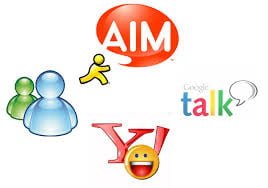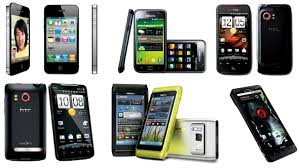Communication – Keeping in touch
Communication
This is going to be top of the list when you are travelling as you will want to keep in contact with family, friends and a lot of the people you meet along the way.
Gone are the days when you would have to send a post card or letter and technology allows for so much more these days.
There are so many ways of keeping in contact but here are some of the more popular options….
Email communication
If you haven’t heard of or already got an email account; where have you been?
Email is basically an electronic way of sending mail without the need for a hard copy, envelope or stamp.
Most email accounts are free to open and access so make sure you don’t pay for something you wont need!
There are many email service providers who will provide you with an email account and address and some of the more popular ones are as follows:
• Your home internet service provider
• Hotmail – Sign up to MSN Hotmail
• Google Gmail – Sign up to Google’s Gmail
Once you have these details you are able to log in to the service providers webpage via the internet for any PC that is connected to the internet anywhere around the world to access your account and send and receive emails to and from anybody assuming you know where to send it.
Social media communication
Social media is probably the most popular and preferred method of communication across the world.
Social media sites give the user a whole variety of opportunities to connect and communicate, they have a whole variety of other features which help to improve communication.
Some of these features are detailed below:
Users can……
• Update a current status (such as I am on the train travelling to ****)
• View each others status and add comments
• Review and share business advertisements
• Upload and share photos
• Chat via the web
• Join a group sharing a particular interest.
• Participate in group conversations
• Play individual and networked games
• Enter competitions
• Email to other users of the site
There are loads of different sights that you can join with varied purposes and usually for free.
Some of the more popular sites are as follows:
• Twitter – social / micro blogging. Users can send & read text-based messages known as “tweets”.
• WAYN – social travel network to help people discover where to go, what to do etc
• Tagged – Social, allows members to browse profiles, play games & share tags & virtual gifts.
• Linked In – social networking website for people in professional occupations
• My space – social networking around music, entertainment
• Pintrest – A pinboard-style photo sharing website
• Facebook – social Net- Users may create a personal profile, add other users as friends, exchange messages & profile updates, join common-interest user groups along with other features.
If you want to join just click the link….
Messenger services & Communications
Instant messaging (IM) is an internet based form of communication that allows users to transmit text-based messages from sender to receiver.
To use an instant messenger service you will need to be signed up to the service provider as will the person you wish to communicate with.
The services may vary but the majority of services will allow users to
• Send instant text messages
• Send in conversation pictures
• Send emotions (graphical representations of an emotion – a smiley face for example)
• Webcam – Allow you to communicate via video over the internet connection
Messenger services can be a great way to keep in touch with people all round the world.
Mobile Phone Communication
In this day and age most of us will own a mobile Smart phone and know how useful this device is for communication.
Some are more basic than others but this section is not to run through all aspects of a mobile phone and it varying features but simply to give you some advise about the bits you may not know that can save you some time or money.
If you are going to travel abroad it is important to check the effects of the following to the bill you are likely to receive
• The cost of phone calls
• The cost of SMS and MMS messaging
• The cost of data charges for web surfing and social media
• The cost to receive calls, SMS and MMS
• Insurance
What are my Options?
• Don’t take my mobile phone
• Call my network provider
• Buy a new SIM when away
• Buy a new phone when away
• Turn off some features
Lets look at these options a little more closely
Don’t take my mobile phone
Now this may not sound possible – you need your phone your phone is your life…
Well life is about to change….
You are heading on the trip of a lifetime, doing new things, seeing new things, meeting new people etc.
Given the whole variety of ways you can stay in touch do you really need a mobile phone?
Call my network provider
A quick call to your network provider can soon clarify the types of cost and charges you can expect to face when you are on your travels.
If you can budget for this and resist all those texts you may just survive….
It is also worth considering some of the bolt on products your network can provide as international calling is surely a bolt on package and for a small monthly charge could save you a fortune…..
Buy a new SIM or phone
If you take your phone with you and your provider operates abroad you may simply be able to buy a pay as you go SIM, pop it in your phone and take advantage of local prices for calls and data
More often than not you will get a decent deal with PAYG but not always, make sure you compare what you need to what is offered.
If you are going to be there a while a contract SIM or SIM and phone may be the cheaper option.
Turn off some features
These days with smart phone technology there is potential to rack up a huge bill over a short period.
A lot of your mobile phone features allow your phone, its apps and services to access your location, to automatically update and send you notifications simply turning off some of the following could save you a fortune in data charges:
• Location services
• Push notifications
• Data roaming
• Auto Sync
• Voice mail
This is what these features do…..
Remember if you use WIFI this is free and can provide you internet access when you need it.
Location services
Location Services allows location-dependent apps and websites (including Maps, Camera, Safari, and other Apple and third-party apps) to use information from cellular, Wi-Fi, and Global Positioning System (GPS) networks to determine your approximate location.
For example, an app might use your location data and location search query to help you find nearby coffee shops or theatres, or your device may set its time zone automatically based on your current location. To use features such as these, you must enable Location Services on your device and give your permission to each app or website before it can use your location data.
Push notifications
The Apple Push Notification Service is a service created by Apple Inc. that was launched together with iOS 3.0 on June 17, 2009. It uses push technology through a constantly open IP connection to forward notifications from the servers of third party applications to the Apple devices; such notifications may include badges, sounds or custom text alerts.
Data roaming
Once overseas you’re no longer using your mobile operator’s data network, so your phone defaults to data roaming mode. This means every megabyte of data you use (sending and receiving) you pay for, as it doesn’t come out of your data plan. With data roaming turned off, your phone can’t connect to any 3G data networks and you can’t run up giant bills.
Turn off auto sync
Auto sync uses a data connection to allow apps to synchronise in the background on your phone and to receive push email notifications, Facebook and Twitter alerts and the like. It’s easy to forget about, but turn it off and you won’t run up data charges – and you can always manually sync and check your emails once you’ve found a WiFi spot.
Turn your voice mail off
If you’re travelling in the EU, your operator is no longer allowed to charge you if someone leaves you a voice mail, but they can and will charge you to listen to it, although the cost is capped at 31p per minute. Outside of the EU however you can be charged to receive a voice mail, and again to listen to it. Instead, turn your voice mail off before you go (you may need to call your provider to do this) and ask people to text you instead, as it’s still free to receive texts overseas.

Webcam
A webcam is a video camera that sends a real time image to your computer or computer network.
Webcams are generally used to allow people to interact over the Web in video format using a platform similar to a messenger service.
You are able to see a real time image of the person you want to interact with (assuming they have a webcam) and they are able to see you using the webcams as a form of videophone or video-conference.
Other common uses include security surveillance, computer vision, video broadcasting, and for recording social videos.
Skype

Skype is a service that allows its users to communicate in a variety of ways including
• Voice using a microphone,
• Video by using a webcam,
• Instant messaging over the Internet.
You could say it gives you the best of all of these options as they are all accessible in one place.
How much does it cost?
One of the best advantages of using Skype is that you are able to “Skype” one another for FREE Its not very often you get something for nothing but to “Skype” each other all you need to do is download Skype, sign in and off you go.
Most internet café’s have access to a webcam and microphone so all you need then is for the person you want to Skype with to have a WebCam and Microphone and to log on at the same time as you!
Obviously you will need to pay the internet café for the time you spend on the net but then you already knew that didn’t you…..
Can I make regular calls?
With Skype you are able to make a regular phone call using the traditional telephone networks but there is a charge involved as calls to land-line telephones and mobiles are charged via your user account.
With 663 million registered users at the end of 2010 they must be doing something right so why not give it a shot.
Skype also offers other services including a premium service that gives you some extra features as follows:
| Premium | Free | |
| Free Skype-to-Skype video and voice calls | Yes | No |
| Access great low rates to phones | Yes | No |
| Group calls | Yes | No |
| Instant messaging | Yes | No |
| Video messaging** | Yes | No |
| Group video calls | Yes | No |
| Group screen sharing | Yes | No |
| No advertising‡ | Yes | Table |
| Live chat customer support | Yes | No |
| Unlimited calls to a country/region of your choice† | Yes | No |
| From £2.99 per month*(£3.44 incl. VAT) | Always Free |








